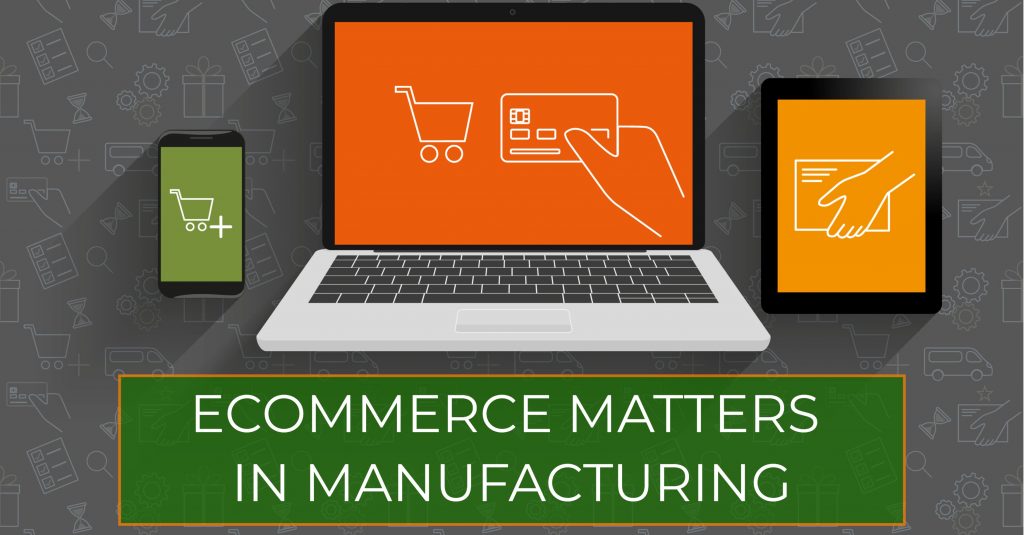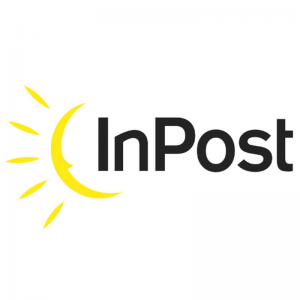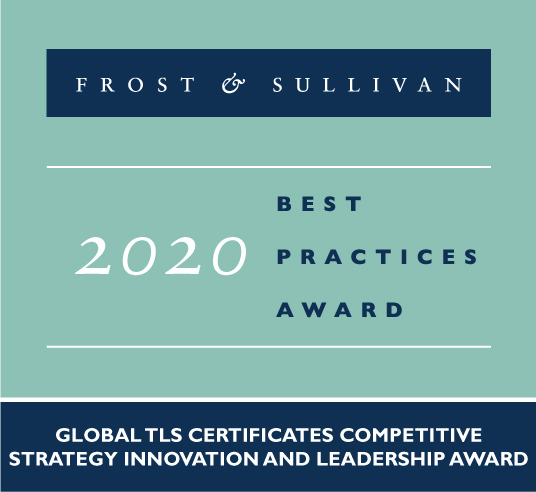All posts by admin
The current state of ecommerce in manufacturing – report

The B2B industry has been watching for years how the B2C industry digitized and adapted its websites to the needs of the consumer. Now it’s time for the B2B sector to invest and boost their revenue by being present online, and in a way their customers are already used to.
Copperberg and Intershop have analyzed the current state of ecommerce in manufacturing in terms of local effectiveness, product complexity, ecommerce platforms, and future investments. Below are some interesting insights.
Covid-19 boosted ecommerce, but the changed buying behavior is a stronger growth driver.
B2B buyers, similar to their B2C counterparts, have advanced online-first expectations. And even though more and more international sales interactions take place through online channels, customers still have to navigate the complex B2B buying process. With almost two-thirds of all B2B purchasing decisions being made on digital channels, many manufacturers need to adapt to this and get their websites ready for B2B ecommerce.
Not all merchants are used to sell online and thus compete effectively. The Covid-19 outbreak has led to more companies being forced to adapt, but this process of adaptation to ecommerce is still ongoing for many.
A potential drawback is the existence of siloed sales- and service channels. Managing digital, direct, and indirect sales separately will negatively impact buyer-seller interactions.
Even before the pandemic, manufacturers were focused on the online transition. In a survey report from 2018, about 80 percent of B2B decision-makers said that if their organization didn’t start with ecommerce then, they would be going out of business in five years’ time.
In reality, not much has changed since 2018, for the companies’ research in 2020 proved that most manufacturers are not willing or ready (yet!) to tap into the full potential of the digital after-sales business.
17 percent of professionals have yet to expand into ecommerce, while the majority already has a global ecommerce strategy in place, be it partially (35 percent) or entirely implemented (31 percent).
Manufacturers are largely focused on investing in technology within the next twelve months, citing ecommerce solutions (67 percent), tools for back-end integrations (54 percent), digital marketing tools (51 percent), digital self-services (49 percent), AI/machine learning (44 percent) and customer portals (43 percent) as the way to achieving their online goals.
The report thinks quick and efficient buying journeys, such as provided by Amazon Business for example, have reshaped the expectations of B2B buyers. These examples have also shortened the distance between customers and suppliers. But firms are often under severe budget pressure.
Almost half of respondents react to this by not just investing, but even to increase their budget for digital investments this year by 10 percent or more. And one in six industry players want to reach their online goals with a 1 to 9 percent increase in budget investments.
Many manufacturers predict a 25 percent increase in online sales in the next two years. And many industry players want to lead the path to innovation (instead of just following it). More than 60 percent have a strong ambition to take over ecommerce leadership in their respective markets.
The report shows that 10 percent of surveyed professionals generate over 90 percent of their global product revenue through online sales. A similar percentage generate more than 51 percent of their revenue by selling digitally. A significant 47 percent, however, see no more than 10 percent of their revenue result from ecommerce.
What are the challenging obstacles to realizing ecommerce ambitions?
Popular answers to this question are the immaturity of customers (40 percent) and the lack of digital skills and knowledge (33 percent).
There’s also the choice between central efficiency and local effectiveness. Centralized ecommerce and decentralized ecommerce both have their pros and cons. But the data shows that the 39 percent of respondents that manage their global ecommerce activities using a central platform and marketing approach, reach up to 25 percent in online revenue.
However, the 36 percent that use a central platform combined with local marketing, alongside the 14 percent that use a local platform and marketing approach, reach between 25 and over 90 percent in online revenue. Still, centralized ecommerce is the most common approach, according to Copperberg and Intershop. Stability is preferred amid global economic uncertainties.
The authors claim that a modern ecommerce platform should provide at least 80 percent of the global requirements. In addition, there are the business processes that are specific to your company but are mapped in all national organizations. That’s about 15 percent. The remaining 5 percent is what makes each online shop special in each country – functions, user journey, or third-party applications.
To successfully run ecommerce in a new country, the web content needs to be in the local language. This improves conversion and search engine ranking.
The report “The State of International E-Commerce in Manufacturing“ is very extensive and also goes into great detail about the best practices for a local approach, the types of products sold online, how to sell complex products, the challenges of homegrown ecommerce solutions, and much more. Download the report for free to get all these insights.
Consumer Password Hassles Linked to Lost Revenue

A report released Tuesday by Transmit Security, an access and identity management company, derived from a survey of 600 U.S-based consumers 18 to 54 years old,Isays that online businesses are losing potential customers and substantial amounts of revenue because they’re dependent on traditional password systems and outdated customer authentication models.
Lost customers and revenues are caused by password sharing and friction created at websites by onerous authentication procedures.
Half of the responding consumers admitted sharing a password to at least one of their accounts; and 41 percent acknowledged they share their passwords often.
There are obvious losses of revenue from password sharing for subscription services, but there is a secondary impact on data collection. When multiple users are sharing an account, it dilutes the data and makes it less valuable.
If accounts are being shared by multiple users, service providers are less likely to accurately monitor usage and are unable to correctly personalize their offerings. Therefore, their user experiences can’t be personalized to meet the expectations of their users.
There are security concerns for a business as well.
If you’re sharing passwords, it’s difficult for the business to understand who they’re talking to or doing business with, isn’t it? It makes it difficult to identify if someone is a true authorized user or somebody who has compromised the credentials.
If 65 percent of users reuse the same password across multiple accounts, the report noted, once users share that one password with someone else they are essentially handing over access to multiple accounts they own.
What is more, traditional password systems are having a negative impact on the shopping experience of many consumers.
According to the survey, two-thirds of users (66 percent) will leave a website if the registration process is too complex.
Nine out of 10 consumers (87.5 percent) told surveyors they’d been locked out of an online account after too many failed login attempts. 92 percent of users leave a website instead of recovering or resetting their login credentials.
Customers are dropping out of transaction processes — or failing to use a site at all — due to overly complicated, and oftentimes error-ridden password systems.
These horrible customer experiences are costing businesses an unimaginable amount of money.
The situation has gotten worse because of the number of digital applications and the number of devices using those applications.
Websites are also putting more restrictions on password selection, making it harder for users to come up with passwords they can remember.
Consumers want a frictionless, fast and easy online experience. Passwords are one of the leading reasons for cart abandonment.
Besides, 2FA and Captcha are indeed a source for dissatisfaction, as they add stress to the login and sign-up processes.
Eliminating passwords is a grand goal but it’s still a distant one at this stage.
A more pragmatic approach is to reduce abuse of passwords which are leaked to ensure that those passwords are only ever used alongside a second independent factor.
Polish InPost acquires Mondial Relay

Polish parcel locker company InPost has acquired Mondial Relay, a major logistics company from France. InPost will pay 565 million euros to buy Mondial Relay and thus expand its international presence.
By acquiring Mondial Relay, inPost suddenly has an immediate footprint in France, one of the largest ecommerce markets in Europe.
The acquisition, funded by new debt, will see the network of InPost expand with about 16,000 pick-up points in France, the Benelux, Spain and Portugal.
It will also boost InPost’s profits by 100 to 150 million euros in the medium term, after its profits already increased by 184 percent year-on-year in 2020.
Otto Group, the previous owner of Mondial Relay, admits that the combination of Mondial Relay and InPost is a clear win for both companies and offers them an optimal position to realize further growth potential in the fiercely competitive and rapidly growing French parcel logistics market.
InPost was founded in Poland in 1999 and offers several parcel delivery and fulfilment services for B2C and C2C deliveries. It has a network of over 12,000 parcel automated in Poland, the United Kingdom, and Italy. Last year, the company made around 249 million parcel deliveries.
PayPal’s big year

According to PayPal’s President and CEO Dan Schulman, PayPal delivered record performance in 2020 as businesses of all sizes have digitized in the wake of the pandemic. In this historic year, they released more products than ever before and dramatically scaled their acceptance worldwide. The platform can boast 377 million consumer and merchant accounts at the moment.
Here’s a quick summary of the impressive 2020 financial results for the global payment leader:
- total payment volume reached $936 billion, up 31% over 2019
- net revenue was $21.45 billion (+22%), compared to $17.77 billion in 2019
- earnings per share of $3.54 (+71%)
- operating cash flow was up 44%, reaching $5.85 billion compared to $4.07 billion year-over-year.
Operating results for the year were equally impressive.
- PayPal added 72.7 million net new accounts, a 95% increase over the previous year, finishing 2020 with 377 million accounts (+29%). The number of merchant accounts totaled 29 million by year-end.
- The company processed more than 15.4 billion payment transactions, increasing 25% over the previous year. Merchant services volume increased 33%, and subsidiary Venmo handled more than $159 billion in total purchase volume (+ 56%).
Like most companies in the financial world, PayPal continues to invest heavily in new technology, digital wallet product launches, and strategic initiatives.
PayPal’s money transfer and P2P service Xoom introduced secure money transfers direct to mobile wallets in Nov in 12 African markets. With a focus on the underbanked, it has plans to add new markets in 2021. Xoom was acquired in Nov 2015 for $1.09 billion.
PayPal launched QR code payments in iZettle’s point of sale app in Dec 2020, allowing UK merchants to accept safe and secure touch-free payments from customers. Contactless payments across its network continued to grow as consumers avoided cash during the pandemic. It acquired Swedish mobile payments company iZettle for $2.2 billion in May 2018.
In May, PayPal introduced QR code checkouts. US drugstore retailer CVS Pharmacy added contactless PayPal contactless payment and Venmo QR codes at more than 8,200 locations.
More than 600,000 merchants now accept PayPal and Venmo QR codes. PayPal acquired Venmo in 2013 as part of its purchase of previous owner Braintree.
What’s ahead for PayPal?
PayPal is optimistic about 2021, projecting revenue of $25.5 billion, growing as much as 19% over this year’s record.
PayPal expects total purchase volume to grow by as much as 25% or more. Most important in terms of growth, the company expects to add as many as 50 million net new accounts in the 2021 fiscal year.
This sets PayPal up for another potential big year near the top of the global digital payments industry leaderboard. That upside will only be limited by the lingering effects of COVID-19, the impact of US and other foreign pandemic relief programs, and the continuing pace of adoption of digital payments by both merchants and consumers.
Sectigo Earns Frost & Sullivan’s Global Competitive Strategy Innovation and Leadership Award

Sectigo Limited, according to its official website, is a leading cybersecurity provider of digital identity solutions, including TLS/SSL certificates, DevOps, IoT, and enterprise-grade PKI management, as well as multi-layered web security. As the world’s largest commercial Certificate Authority with more than 700,000 customers and over 20 years of experience in online trust, Sectigo partners with organizations of all sizes to deliver automated public and private PKI solutions for securing webservers, user access, connected devices, and applications. Recognized for its award-winning and best-in-class global customer support, Sectigo has the proven performance needed to secure the digital landscape of today and tomorrow. Issuing more than 100 million certificates in more than 200 countries, Sectigo continues to make strategic investments to expand its reach, capabilities, and portfolio.
Frost & Sullivan, in its turn, is a research & consulting firm that helps clients accelerate growth. It is involved in market research and analysis, growth strategy consulting, and corporate training across multiple industries. For the past 60 years, Frost & Sullivan has partnered with corporations, cities, governments, and the investor communities to identify, prioritize, and execute on new business opportunities powering clients toward a future shaped by growth.
This year Frost & Sullivan has recognized Sectigo’s efforts and has awarded them with the best practices award.
In her report Frost & Sullivan analyst Swetha R. Krishnamoorthi states that “Sectigo Certificate Manager leverages automation and single pane of glass control and simplifies issuance, discovery, renewal, revocation, and replacement. Frost & Sullivan commends Sectigo’s success in streamlining how organizations manage PKI for public and private TLS certificates.
The analyst adds that “Sectigo built an impressive certificate manager that provides organizations without large IT teams with the capability to administer TLS and PKI certificates for devices, users, and applications. With a single interface, users gain the robust and straightforward ability to administer all certificates and encryption keys for code signing, document signing, S/MIME, mobile and IoT devices, DevOps, and passwordless VPN/Wi-Fi/web applications.”
Frost & Sullivan recognizes Sectigo’s advancements in the areas of certificate discovery and automation. IoT, applications, containers, and other connected devices have proliferated at an astonishing rate, substantially increasing the number of certificates that businesses must manage and dramatically increasing the need for reliable certificate discovery and efficient certificate management.
Sectigo is committed to easing the burden of certificate management for enterprises of all sizes. In addition, Frost & Sullivan acknowledges Sectigo Certificate Manager’s efficiency, integration, and cost effectiveness, stating that “With Sectigo’s toolset, IT teams can truly manage certificates at scale and with ease.” The report goes on to say that “The range of integrations with the leading DevOps automation and orchestration platforms and applications compliant with IETF protocols enables Sectigo’s management console to minimize costs, eliminate certificate expiry, and provide the management of all certificate needs as enterprises implement their digital transformation.”
Automation, integration, and scalability are indeed the foundational pillars of Sectigo’s platform that make it easy for businesses to authenticate human and machine identities accessing their networks. Industry experts recognize the impact of automation tools, such as ACME, as well as myriad use cases that make TLS certificate management seamless.
Frost & Sullivan’s recognition underscores Sectigo’s important role in making the Internet a safer, more secure place, and Sectigo will continue to build on that commitment.